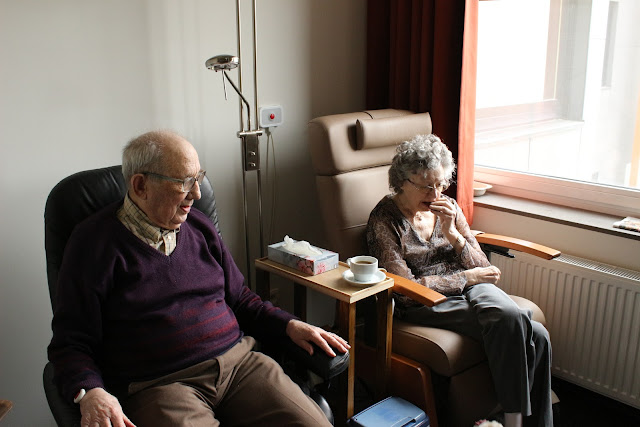 |
| Photo by Elien Dumon on Unsplash |
The rights of all nursing home residents are generally the same. However, when someone becomes unable to communicate or make decisions for themselves, then arrangements should be made on what their preferences were in the past. Their rights such as their privacy and security are still of the utmost importance.
Privacy
Life in a communal home is challenging. Most residents still need to feel that their privacy is being respected, especially when it comes to personal care. Here are some tips on what to look for:- A patient is involved in decisions that affect them. For example, when they shower, whether they would prefer to only be cared for by female staff and what they wear.
- Personal care is done in private with the door closed.
- Ensuring confidentiality with their care and not openly discussing intimate matters in front of other residents.
- Being allowed to self-care where they can and retain independence even where it might take them a long time.
Security
Residents should feel safe and cared for. This includes:- Offering assistance with tasks that could otherwise be dangerous such as walking or using the toilet.
- Protecting residents from abuse from staff or other residents.
- Everything is as accessible as possible, and the floor is clear from hazards.
- A clear and accessible complaint process.
- An atmosphere of care that is open, honest and inclusive.
Civil Rights
Residents should still retain their rights as citizens as far as they can do so, including:The opportunity to vote in elections.
- Access to healthcare.
- Assistance claiming appropriate benefits or social services.
Choice
Residents should always have control and choice as far as they can do so. They should be involved in making decisions about their care and be allowed to change their mind daily if they wish to, including:- Where and what they eat within reason.
- Who they choose to socialize with.
- Activities they can get involved in.
- How to manage their own time and the choice to be flexible with their routine.
- An opportunity to share preferences.
- Religious or ethical beliefs, which should be respected and upheld by those around them.
 |
| Photo by Matthias Zomer from Pexels |